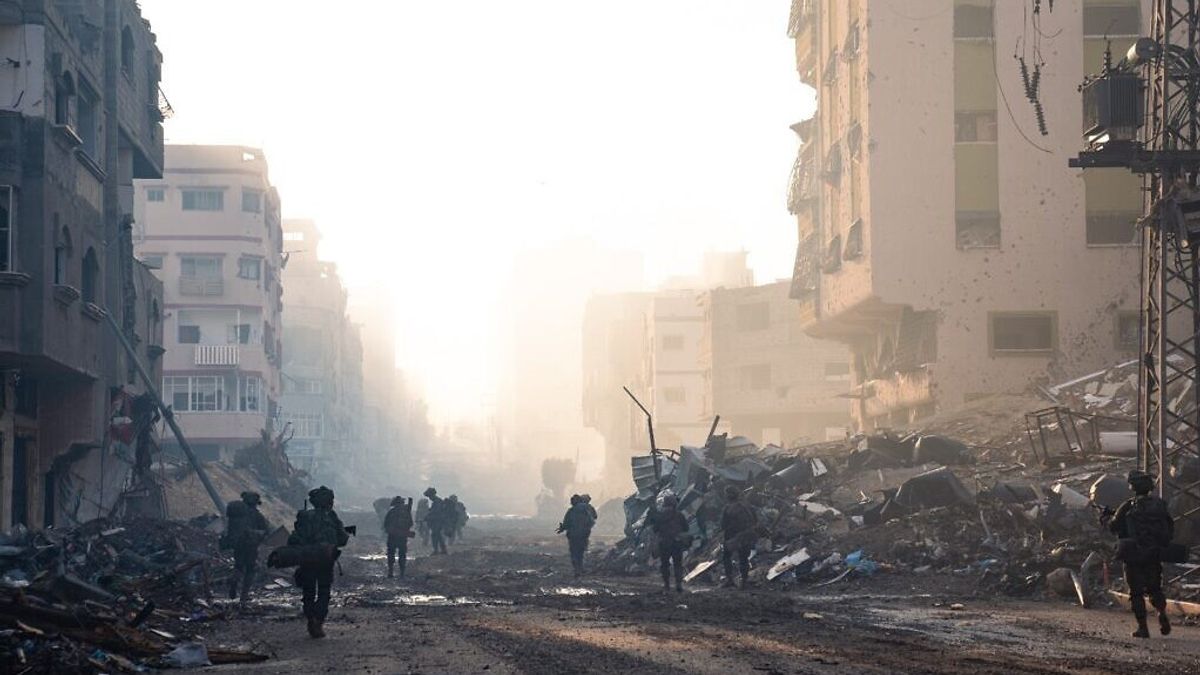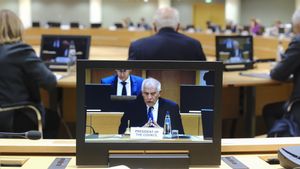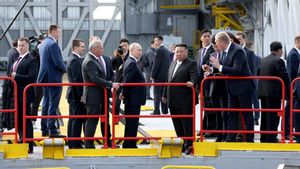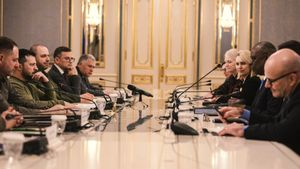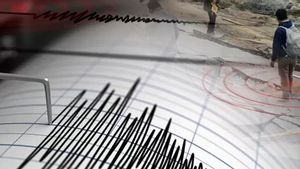JAKARTA - A UN protectorate is not a solution regarding governance in Gaza after the war, with the world body assessing the risks as too great, instead putting forward a two-state solution.
UN Secretary General Antonio Guterres on Monday said a UN protectorate was not the solution for Gaza's governance after the war between Israel and Hamas ended.
"It is very important to be able to turn this tragedy into an opportunity," said Guterres, as reported by The National News, November 21.
"And for that to happen, it is imperative that after the war, we must move with firm and irreversible determination towards a two-state solution," he told reporters in New York, underscoring the importance of supporting the Palestinian Authority to assume responsibility in Gaza.
Amid the ongoing conflict in Gaza, questions are growing regarding the future of the enclave's government after the fighting ends.
"We're going to need a multi-stakeholder approach where different countries, different entities, will work together," Borrell said.
"For Israel, of course, the US is the main guarantor of its security. For Palestine, neighboring countries and Arab countries in the region are very important," he stressed.
According to Politico, Germany has put forward a proposal suggesting that the UN take over control of the Gaza Strip when the war ends.
Germany's two-page proposal, dated October 21, outlines the idea of a well-coordinated transition to Palestinian self-rule through elections, with international support ensuring security throughout this process.
In response, Richard Gowan, UN director at the International Crisis Group, told The National News that officials were "nervous" about the idea of the world body governing Gaza as it has done with Kosovo and Timor Leste.
"There are clear security risks," he said.
"The UN will look like a proxy for Israel. There will be a high risk of protests and terrorist attacks targeting the UN," he explained.
"The risk is too high," said Gowan.
Gowan said there was a lot of discussion about the need for a transition period in Gaza, but no one wanted to take responsibility for the transition.
Separately, Jordanian Foreign Minister Ayman Safadi rejected the idea of sending Arab peacekeepers to Gaza after the war ends to prevent the rise of Hamas and provide overall security.
"There will be no Arab troops going to Gaza, there won't be," he said.
A plan to station Arab troops in Gaza after the war ends would send a message to Israel that it has the freedom to destroy the enclave, Safadi said.
Previously, Prime Minister Benjamin Netanyahu insisted that Israel would maintain security control over Gaza.
SEE ALSO:
Meanwhile, US Secretary of State Antony Blinken firmly rejected the idea that the Gaza Strip would be reoccupied by Israel, at a meeting of foreign ministers in Tokyo on November 8.
Blinken outlined his comprehensive vision for Gaza's future, emphasizing the importance of a Palestinian-led government and the unification of Gaza with the currently Israeli-occupied West Bank under the Palestinian Authority.
"This must include the voices and aspirations of the Palestinian people at the center of post-crisis governance in Gaza," he explained.
The English, Chinese, Japanese, Arabic, and French versions are automatically generated by the AI. So there may still be inaccuracies in translating, please always see Indonesian as our main language. (system supported by DigitalSiber.id)
